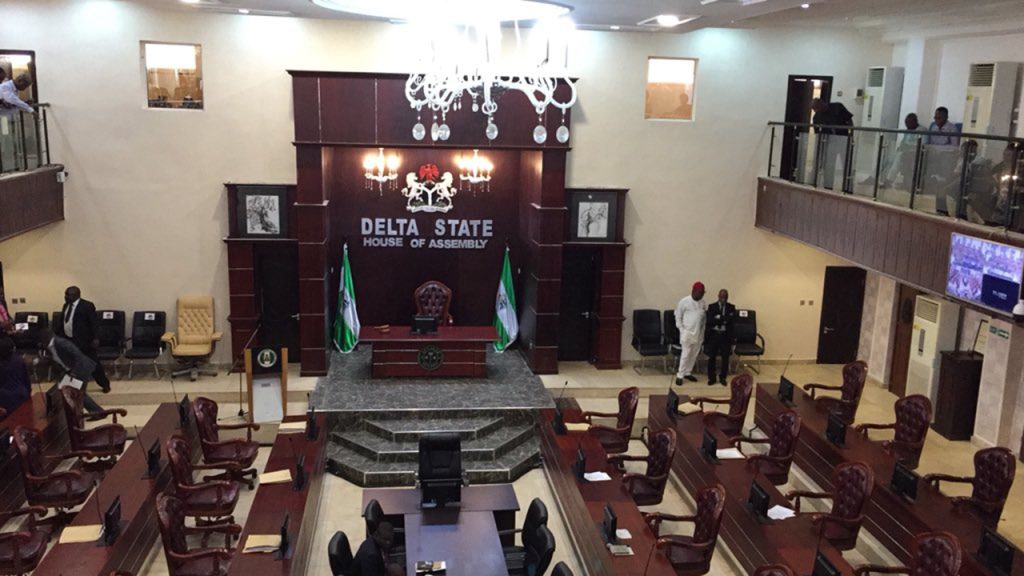The Delta State House of Assembly’s Unanimous Shift to the APC: A Political Earthquake
The political landscape of Delta State experienced a seismic shift on Tuesday, as Speaker Dennis Guwor and 21 other members of the Peoples Democratic Party (PDP) announced their defection to the All Progressives Congress (APC). This mass exodus effectively transformed the State House of Assembly into a one-party legislature, with the remaining seven members already belonging to the APC. The defection, which followed a period of intense political maneuvering and consultation, marks a significant realignment of power in the state and signals a new era of cooperation with the federal government under President Bola Tinubu.
Guwor, in his address to the House during the post-Easter plenary resumption, emphasized that the decision was not taken lightly. He outlined a process of extensive consultations with constituents and key political figures across the state, ensuring that the move resonated with the will of the people. The Speaker anchored the legality of the defection on Section 109 of the 1999 Constitution, which provides for such transitions under specific circumstances. He portrayed the shift as a strategic alignment with the federal government, positioning Delta State to benefit from closer ties with the center and access to greater developmental opportunities.
The defection was framed as a response to the larger political realignment occurring at the state level, particularly Governor Sheriff Oborevwori’s own recent move to the APC. Guwor lauded the Governor’s leadership in spearheading this transition and expressed the House’s unwavering support for his vision. He underscored the importance of fostering a robust partnership between the state and federal governments, emphasizing the potential for accelerated development and improved welfare for the people of Delta. The Speaker stressed the urgency of embracing this new political dynamic to maximize its benefits for the state.
Further elaborating on the rationale behind the mass defection, Guwor pointed to the internal turmoil within the PDP. He cited the instability within the party’s national leadership and the factionalization of the South-South Zonal Executive Committee as key contributing factors. These internal divisions, according to the Speaker, created an environment of conflict and disunity, making it untenable for them to remain within the PDP. He reiterated that their decision was constitutionally sound, referencing Section 109(1)(g) of the 1999 Constitution as amended, which provides for defection in cases of division or faction within a political party.
Following Guwor’s announcement and the formal submission of 22 letters of defection, including his own, the House swiftly moved to adopt the changes. Majority Leader Emeka Nwaobi introduced a motion to formally recognize the members’ new party affiliations. The motion was seconded by Ferguson Onwo, representing Isoko South II constituency, and was unanimously adopted by the House through a voice vote. This seamless transition showcased the unified front presented by the newly formed APC majority and signaled a cohesive approach to legislative business moving forward.
In subsequent interactions with the press, Nwaobi, the Majority Leader, reiterated the reasons behind the mass defection. He echoed Guwor’s sentiments regarding the internal strife within the PDP, highlighting the instability at the national level and the fractionalization within the South-South zone. He emphasized that the decision to join the APC was driven by the desire for stability and alignment with the ruling party at the federal level, facilitating a more effective partnership for the benefit of Delta State. This move represents a significant political realignment within the state and raises questions about the future of the PDP in Delta and the wider South-South region.
The defection of these 22 lawmakers, including the Speaker, reshapes the political dynamics of Delta State. The Assembly’s now complete alignment with the APC under Governor Oborevwori’s leadership paves the way for potentially streamlined governance and closer collaboration with the federal government. However, it also raises questions about the future of political opposition in the state and the potential implications for democratic discourse and accountability. The long-term consequences of this political earthquake will unfold in the coming months and years, shaping the political landscape of Delta State and influencing its trajectory of development and governance.














